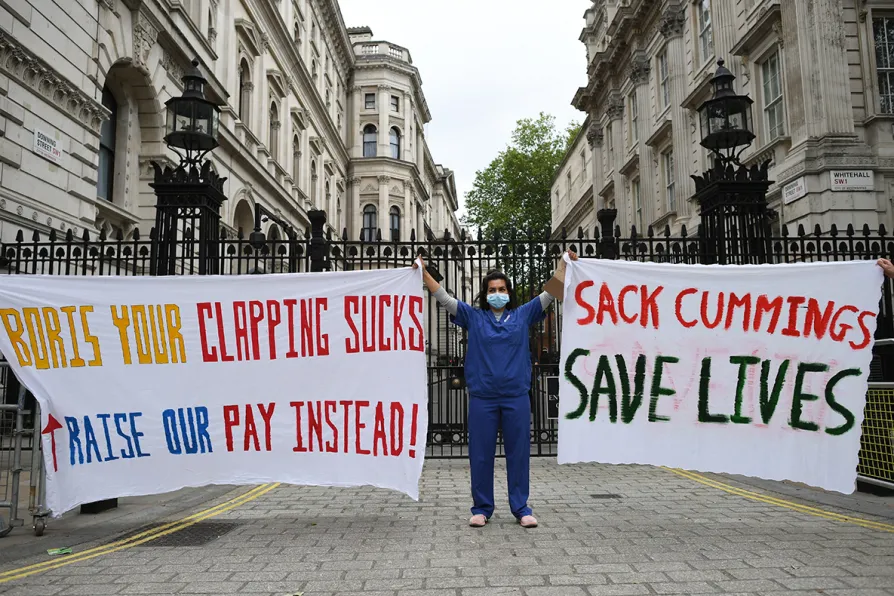Corbyn’s intervention exposes a corrupted system, writes CLAUDIA WEBBE

 Nurse Ameera Sheikh protests outside Downing Street, London, demanding a pay rise, real protection against COVID-19 and and the release of Public Health England's review into BAME NHS staff's deaths in June
Nurse Ameera Sheikh protests outside Downing Street, London, demanding a pay rise, real protection against COVID-19 and and the release of Public Health England's review into BAME NHS staff's deaths in June
To nobody’s great surprise the coronavirus crisis has exposed the dreadful weaknesses in labour law in our country and clearly shown the need for a new framework of labour rights in Britain.
We need radical reform in health and safety rights, individual rights at work and of course rights for trade unions at least compliant with International Labour Organisation (ILO) Conventions 87 and 96, that Britain has signed, that guarantee a right to join a union, a right to organise, a right to collective bargaining and by implication a right to strike.
The ILO is an agency of the United Nations, its Conventions have the standing of international treaties but as the UK government has recently shown its respect for international treaties has been shown to be lacking. Of the expected breach of the EU Withdrawal Agreement government minister Brandon Lewis said, “This does break international law … in a very specific and limited way.”

It is only trade union power at work that will materially improve the lot of working people as a class but without sector-wide collective bargaining and a right to take sympathetic strike action, we are hamstrung in the fight to tilt back the balance of power, argues ADRIAN WEIR

TONY BURKE says an International Labour Conference next month will try for a new convention to protect often super-exploited workers providing services such as ride-hailing (taxis) such as Uber as well as fast food and package delivery











